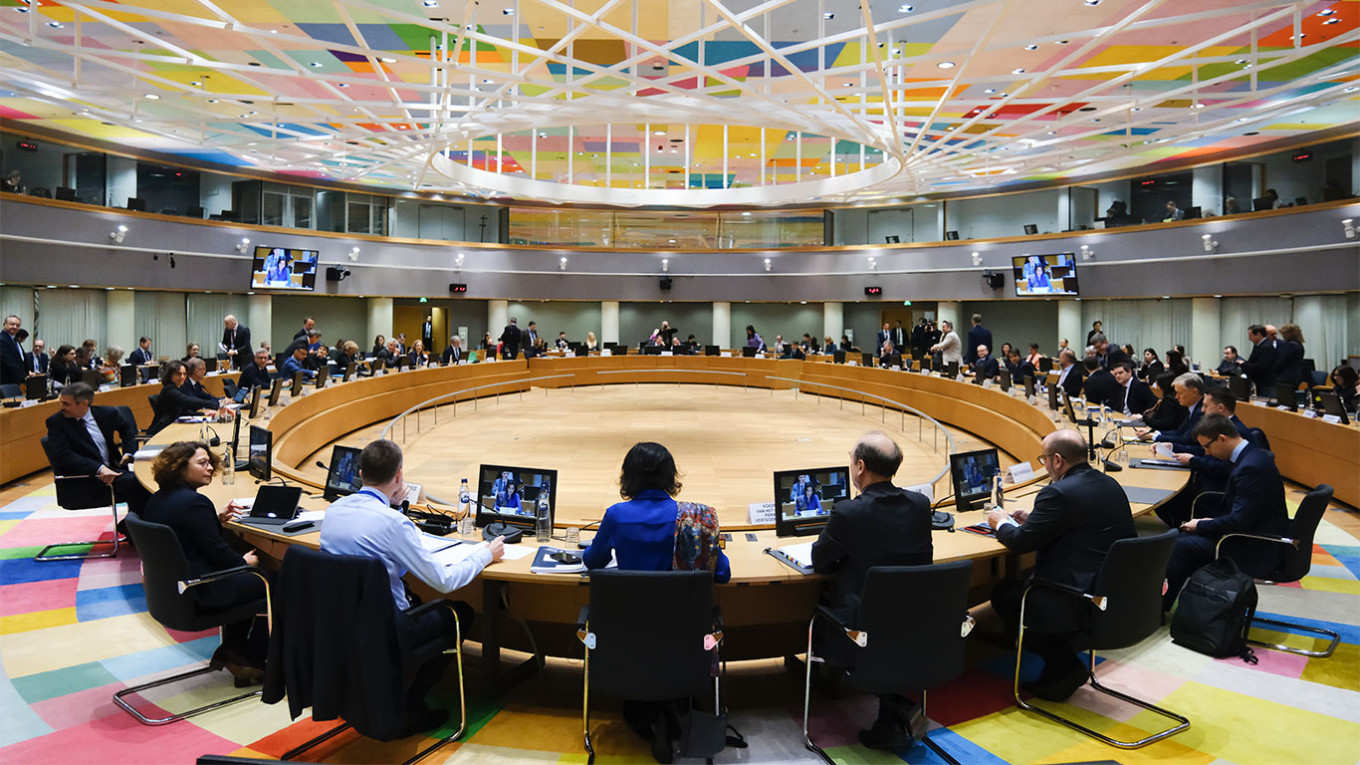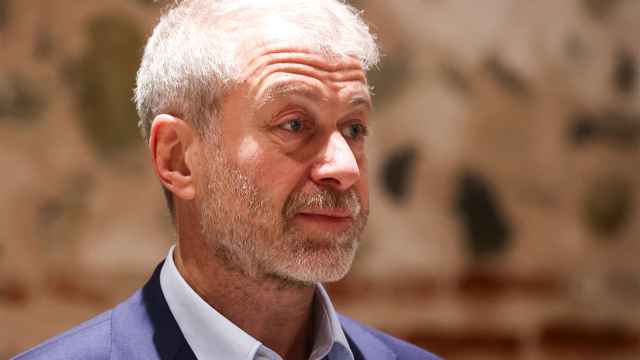The EU has agreed on a first step toward tapping profits from frozen Russian assets to help pay for the reconstruction of wartorn Ukraine, officials said.
The agreement moves forward a long and legally fraught debate about how to use Russian state assets that were blocked by Western institutions in the wake of Moscow's full-scale invasion of Ukraine nearly two years ago.
The EU has frozen some 200 billion euros ($220 billion) of Russian Central Bank assets, with about 90% of those funds held by the international deposit organization Euroclear, which is based in Belgium.
Simply confiscating all that money and giving it to Ukraine's reconstruction efforts is not seen as a viable option, as it could rattle international markets and undermine the euro.
Some countries, notably Belgium, had proposed a windfall tax on the frozen funds that could generate some three billion euros a year for Kyiv.
The European Commission made a cautious proposal that was put to all 27 EU member countries under which deposit holders like Euroclear would first have to separate interest or profits earned on the frozen assets.
A second proposal was to be put forward later on how the ring-fenced profits could then be shifted into a fund that would go to Kyiv.
Lithuania's ambassador to the EU, Arnoldas Pranckevicius, called the overnight preliminary agreement a "very important and long-awaited decision," but added that it was "only the beginning of the road."
G7 issue
The issue goes beyond the EU, as the bloc acted in concert with the G7 group of wealthy nations to freeze the Russian assets.
The United States wants a collective G7 decision on how to tap into the money.
Diplomats say Washington is increasingly in favor of outright confiscation of all frozen Russian funds, a view European officials have pushed back against.
Debates about the frozen funds come at an otherwise difficult time for Ukraine as continued Western support runs into political headwinds in both Washington and Brussels.
In the United States, Republicans have so far blocked further U.S. funds and weapons for Ukraine amid disputes about migration policy.
And in the EU, Hungary has blocked 50 billion euros in European financial support for Kyiv.
A summit in Brussels on Thursday will again tackle that issue with hopes of persuading Hungary to drop its veto against aid to Ukraine.
The total cost of rebuilding the wartorn country is estimated to be at least $411 billion, according to a joint assessment put out in March last year by the World Bank, the European Commission and the United Nations.
A Message from The Moscow Times:
Dear readers,
We are facing unprecedented challenges. Russia's Prosecutor General's Office has designated The Moscow Times as an "undesirable" organization, criminalizing our work and putting our staff at risk of prosecution. This follows our earlier unjust labeling as a "foreign agent."
These actions are direct attempts to silence independent journalism in Russia. The authorities claim our work "discredits the decisions of the Russian leadership." We see things differently: we strive to provide accurate, unbiased reporting on Russia.
We, the journalists of The Moscow Times, refuse to be silenced. But to continue our work, we need your help.
Your support, no matter how small, makes a world of difference. If you can, please support us monthly starting from just $2. It's quick to set up, and every contribution makes a significant impact.
By supporting The Moscow Times, you're defending open, independent journalism in the face of repression. Thank you for standing with us.
Remind me later.






